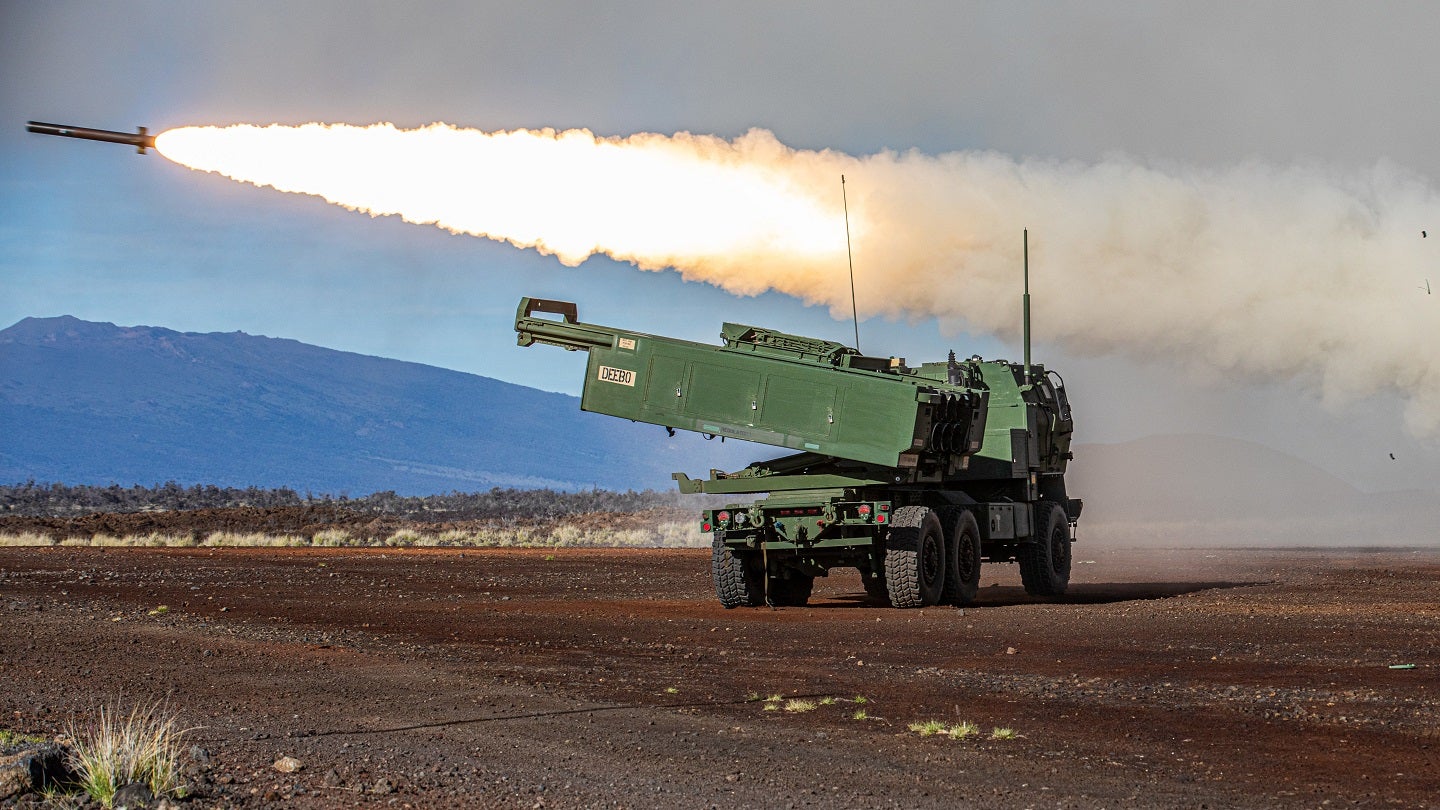
The proliferation of the US-made M142 High Mobility Artillery Rocket Systems (HIMARS) throughout European militaries looks set to continue following the approval by the US State Department of the sale of the guided rocket launcher to Italy in a deal worth up to $400m (€368m).
On 15 December the US Defense Security Cooperation Agency (DSCA) stated that the approval of the possible Foreign Military Sale (FMS) had been given. Italy has requested 21 M142 HIMARS launchers and one M31A2 Guided Multiple Launch Rocket System Unitary (GMLRS-U) High Explosive (HE) Pods with Insensitive Munitions Propulsion System.
Also included are AN/PRC-158 Multi-Channel Tactical Radio installation kits; Multi-Channel AN/PRC-158 radios; RF-7800i CU100 radio router; HARRIS installation kits for 160W high frequency (HF) radio system; HF AN/PRC-160W-HF radios; among other equipment.
The US DSCA stated that the proposed FMS would “support US foreign policy and national security” by improving the capabilities of a Nato member state. The principal contractor will be Lockheed Martin.
Poland, Romania, and Ukraine are other European operators of the wheeled M142 HIMARS, which similar to the tracked M270 MLRS platform, also manufactured by Lockheed Martin. A key differentiator between the M142 and M270 is the ammunition loadout; the former carries a single pod for GMLRS munition, half that of the M270.
Calls for EU states to spend in Europe
The head of the European Commission, former German defence minister Ursula von der Leyen, recently called for European countries to commit more funding to the development of European military systems rather than relying on US-made equipment.
In her recent speech to the European Defence Association, von der Leyen stated while EU member states’ national defence budget are rising, “too much” was being spent in isolated single-country programmes, rather than combining requirements into one common design, as envisaged through the PESCO structure. According to von der Leyen, collaborative defence spending between EU states was below 20%, some distance from the 35% target.
In addition, a significant proportion of European countries’ defence spending was being done so outside of the continent. “Latest figures show that additional funds are in large majority spent outside the European Union. We are predominantly buying alone and buying abroad,” von der Leyen said.



